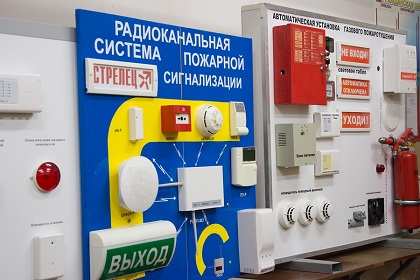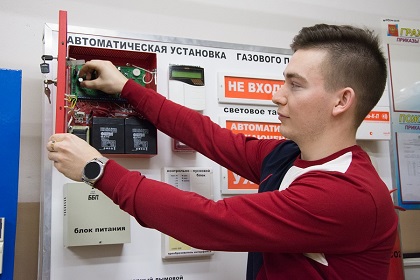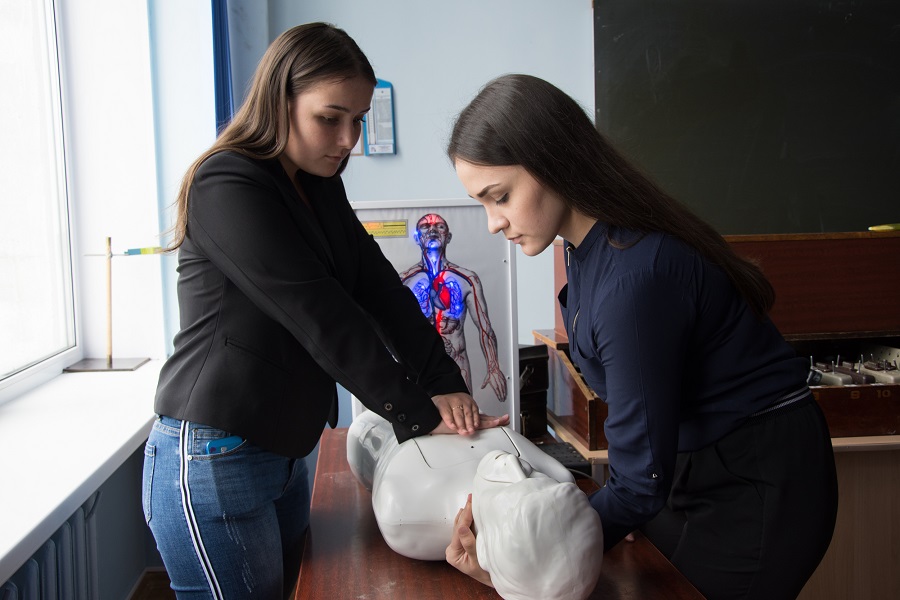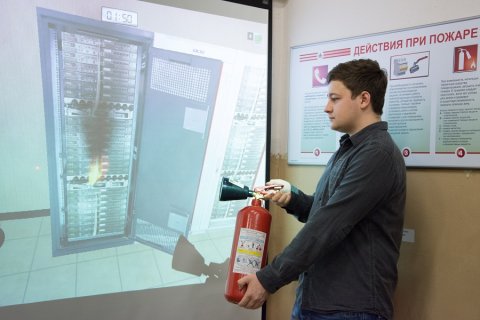Unfortunately, over the last years, emergency situations connected with terrorism occur frequently. Teaching of how to behave in such situations might save people’s life and health. Starting from 2019, SUSU’s Independent Certification and Methodology Centre offers training in a topical programme entitled “Personal safety and algorithm of actions in case of the threat of terrorism act occurrence.”
Independent Certification and Methodology Centre of South Ural State University (ICMC SUSU) had been established at the Department of Life Safety within SUSU’s Institute of Engineering and Technology. For 11 years, the Centre has been rendering educational services on programmes of supplementary vocational education: qualification enhancement and vocational retraining of directors and specialists.
Classes on supplementary education programmes are conducted by highly qualified academics of the Department of Life Safety.
“Presently, the Centre performs training on 19 educational programmes, including those recommended by the MES of Russia, Ministries of Labour and Social Protection, Natural Resources and Ecology, and Rostekhnadzor. Primary direction of the educational programmes is technospheric safety: labour protection as well as ecological, industrial and fire security, civil defense and protection in emergency situations, first-aid treatment of victims, provision of people’s personal security under occurring treat of a terrorism act, etc.,” says Head of the Department of Life Safety, Aleksandr Sidorov.
In 2019, the Centre launched two new qualification enhancement programmes. The first programme entitled “Personal safety and algorithm of actions in case of the threat of terrorism act occurrence” is relevant for teaching staff of educational institutions as well as for company employees, and is targeted at ensuring personal safety under occurrence of the terrorism act threat. The second programme entitled “Fire protection systems and calculation of fire risk” are in-demand among specialists of project organisations.
“Launching of new programmes is predetermined by requirements of legislative documents as well as by the necessity of additional knowledge within already-existing qualification of project organisations,” explains Director of the Independent Certification and Methodology Centre, Svetlana Borovik.


In 2018, upon initiative of the Department of Life Safety, an Agreement on cooperation was signed between SUSU and the Ministry of Public Safety (MPS) of the Chelyabinsk region. Within the Agreement, ICMC together with MPS and Head Office of the MES of Russia for the Chelyabinsk region held seminars for governors of rural settlements on Security Provision and Protection of Population and Territories of Rural Settlements in Case of Emergency Situations. Another series of seminars was held for representatives of public associations (representatives of the Fair Russia Party in the Chelyabinsk region) on competency of holding inspections for compliance with legislation on fire safety in shopping malls with entertaining centres.
In 2018, Fundamentals of Life Safety teachers of schools and colleges completed free training on the qualification enhancement programme entitled “Topical issues of life safety”.
“Our Centre takes an active part in activity of the Network University in the sphere of industrial, nuclear and power engineering safety, a member of which is SUSU. Under its direct participation, we have developed supplementary professional educational programmes intended for training of Rostechnadzor’s human resources,” says Aleksandr Sidorov.

In the education process, SUSU’s Independent Certification and Methodology Centre uses teaching-and-learning and laboratory resources of the Department of Life Safety. Teaching and learning aids for attendees get constantly updated in accordance with new technology development and labour market demands; training and production facilities for practical training gets expanded. For example, Vitim simulator is used in order to acquire practical skills in first aid treatment of victims, and a virtual didactic-and-laboratory complex called “Room equipage with primary fire-extinguishing means” is applied for acquisition of theoretical knowledge and practical skills when fighting fire and using fire extinguishers.
Every year, up to 1000-1500 people complete training on the Centre’s supplementary education programmes in full-time and extramural forms of study with the use of online technologies; Among those who undertake the training are SUSU’s academic and administrative staff (500 people), 5th-year students of Specialist studies and 2nd-year students of Master’s studies, for whom obtainment of a certificate on vocational retraining gives a chance to extend the sphere of their professional activity.
From 2008 till 2018, more than 14 thousand people from the city of Chelyabinsk, as well as from Chelyabinsk and Novosibirsk regions, Khanty-Mansi and Yamalo-Nenets Autonomous Okrugs completed training at the Centre. They are executives and specialists of such large enterprises as Fortum JSC, FGC UES PJSC, First Cargo Company JSC, MMK OJSC, Rostelecom OJSC, NOVATEK-PUROVSKY ZPK LLC, NOVATEK-TRANSERVICE JSC, RN-Bureniye LLC, RN-Yuganskneftegaz LLC, Makeyev State Rocket Centre, etc. For attendees from Kazakhstan, a workshop was held on risk assessment of occurrence of emergency situations of man-made, natural or social nature, which is currently applicable in the Russian Federation.
Contacts:
87 Lenin prospect
office 520а / 3rd academic building
Telephones: +7 (351) 230-50-28, 267-96-26




